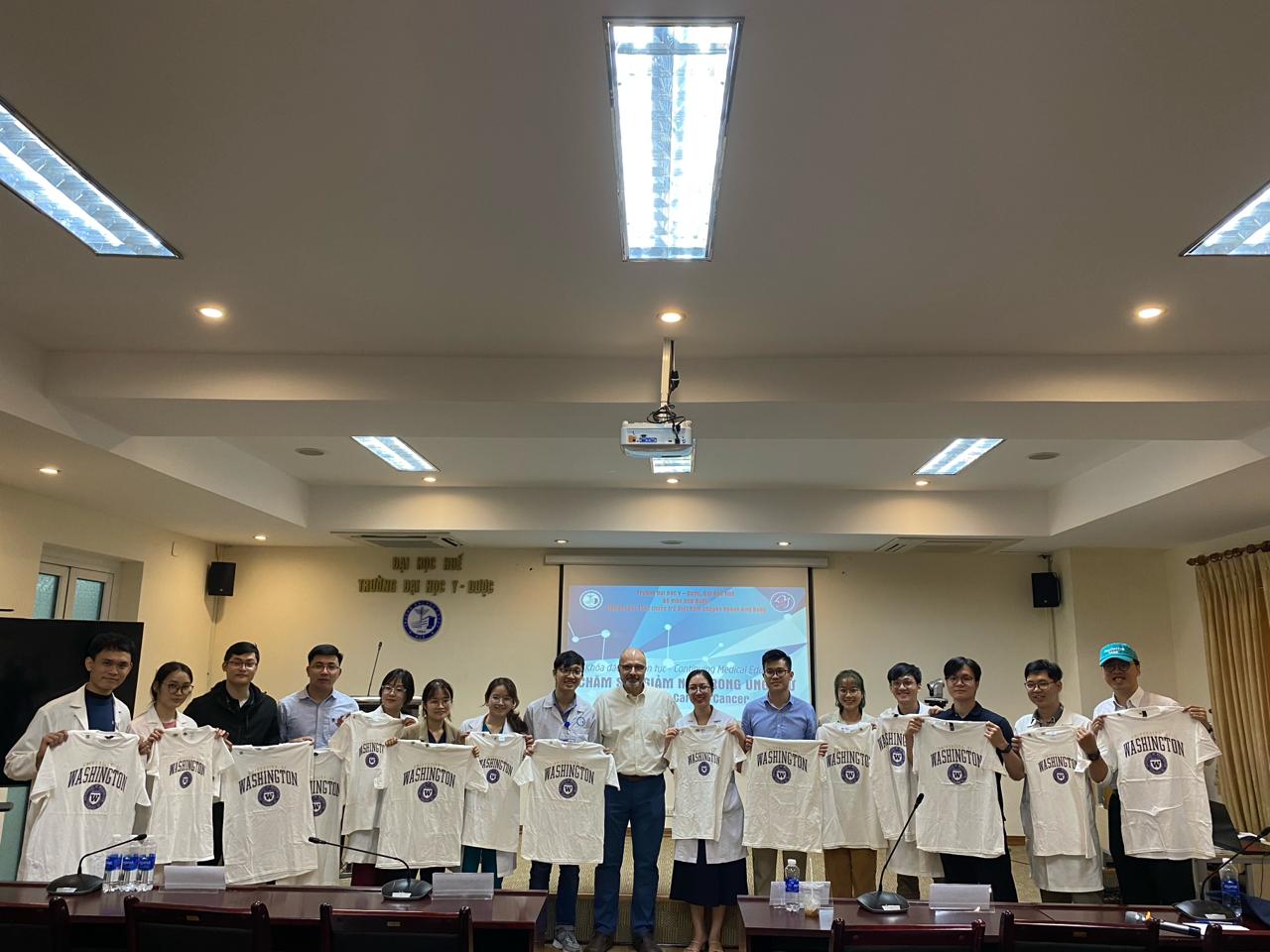
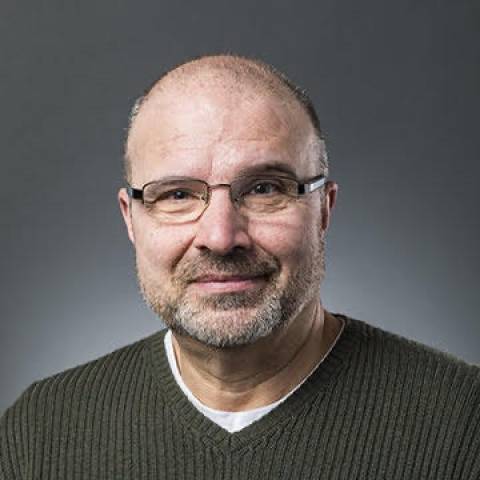
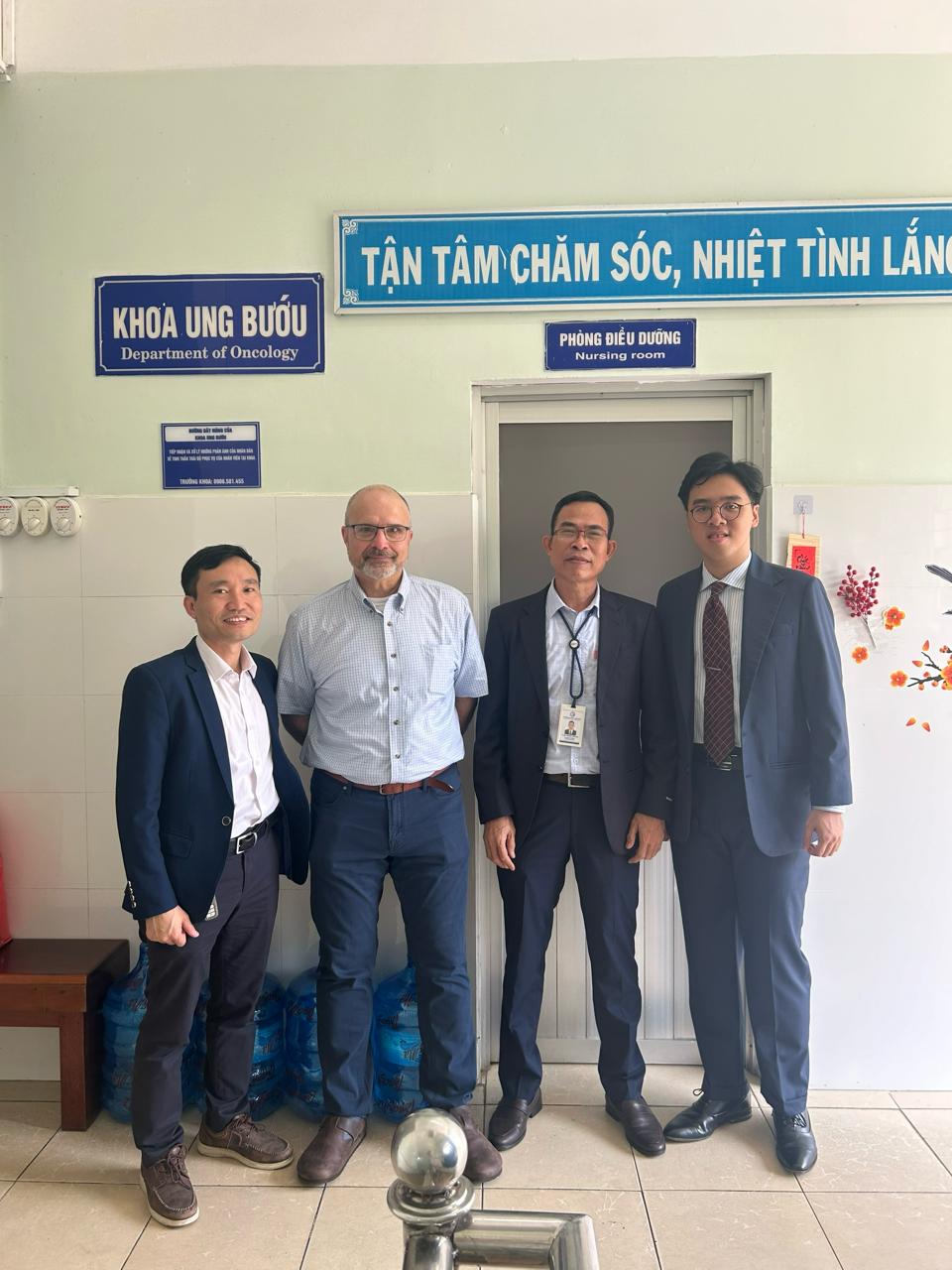
Expanding palliative care education in Vietnam
Volunteering in Vietnam
Dr. Darrell Owens, DNP, ACHPN, CT, FAAN, clinical associate professor (Gerontology and Geriatric Medicine) is passionate about expanding palliative care services in the pacific northwest and beyond. As associate medical director/section head of palliative care at UW Medical Center-NW Campus, he has been providing palliative care to seriously ill patients and teaching trainees for over 20 years.
Over 5 years ago, Owens began volunteering his time teaching palliative care to medical providers in Vietnam. The decision to devote his free time to this work was has both professional and personal significance.
“My work in Vietnam is my contribution to improving the care of the dying globally, one small way to pass on my 30+ years of palliative care knowledge and experience,” Owens said.
“My work also has a personal component, as I have been married to a Vietnamese immigrant for the past 24 years, making the "in-law" half of my family Vietnamese. I should also point out that my husband has never traveled to Vietnam, although we are working on it.”
Owens’ first teaching trip to Vietnam was to Hue, prior to the pandemic, during which was accompanied by the Vietnamese Cultural Mediator from HMC, who historically spent a month in Vietnam each year. During this first trip, he taught several introductions to palliative care lectures to medical students, nurses, and attending physicians.
Delayed by COVID, he was eventually able to return this year and recently spent two weeks visiting Hue University of Medicine and Pharmacy in Hue and the National Cancer Hospital #1 in Hanoi.

Palliative care landscape
Resources for palliative care education are limited in many areas of Vietnam, and there is significant work to be done to improve care at the end of life, particularly for oncology patients. Many cancer patients are diagnosed in late stages, and cancer remains the number one cause of death in Vietnam. Although home deaths are preferred, there is currently no organized home hospice program and treatment therapies often are limited based on ability to pay and can vary by geographic region.
Medical providers in Vietnam also have mixed experiences with palliative care. Specialty training for physicians is completed in unpaid residencies (their training is considered payment for their work as a resident). For this reason, many residents attend medical school and residency in their home province (where they can continue living with and receiving family support) where they may or may not have exposure to palliative care. For oncology residents, in particular, many spend part of their residency in France or Belgium where many receive exposure to palliative care. Academic medical faculty must also obtain a PhD, in addition to medical school, in which some obtain further palliative care training.
Owens provides the only formalized, consistent palliative care training to date in Hue, and is only one of two providers in Hanoi. Most of the palliative care education and training in Vietnam has been conducted in the south (Ho Chi Minh City) through the significant efforts of Harvard faculty member Dr. Eric Krakauer, MD, PhD, associate professor of Global Health and Social Medicine.
Intensive training program in Hue
In his recent visit to the Hue University of Medicine and Pharmacy in Hue, Owens taught a three-day didactic intensive palliative care program primarily for oncology residents, with many attending faculty also joining.
The program was live in Hue but also available via Zoom for parts of central and northern Vietnam (approximately 40-50 people per day attended online). Areas covered included the core domains of palliative care (physical, social, emotional, and spiritual), advance care planning, physical symptom management, grief and loss, and breaking bad news. In addition to didactic teaching, he also participated in clinical teaching rounds on the oncology units.
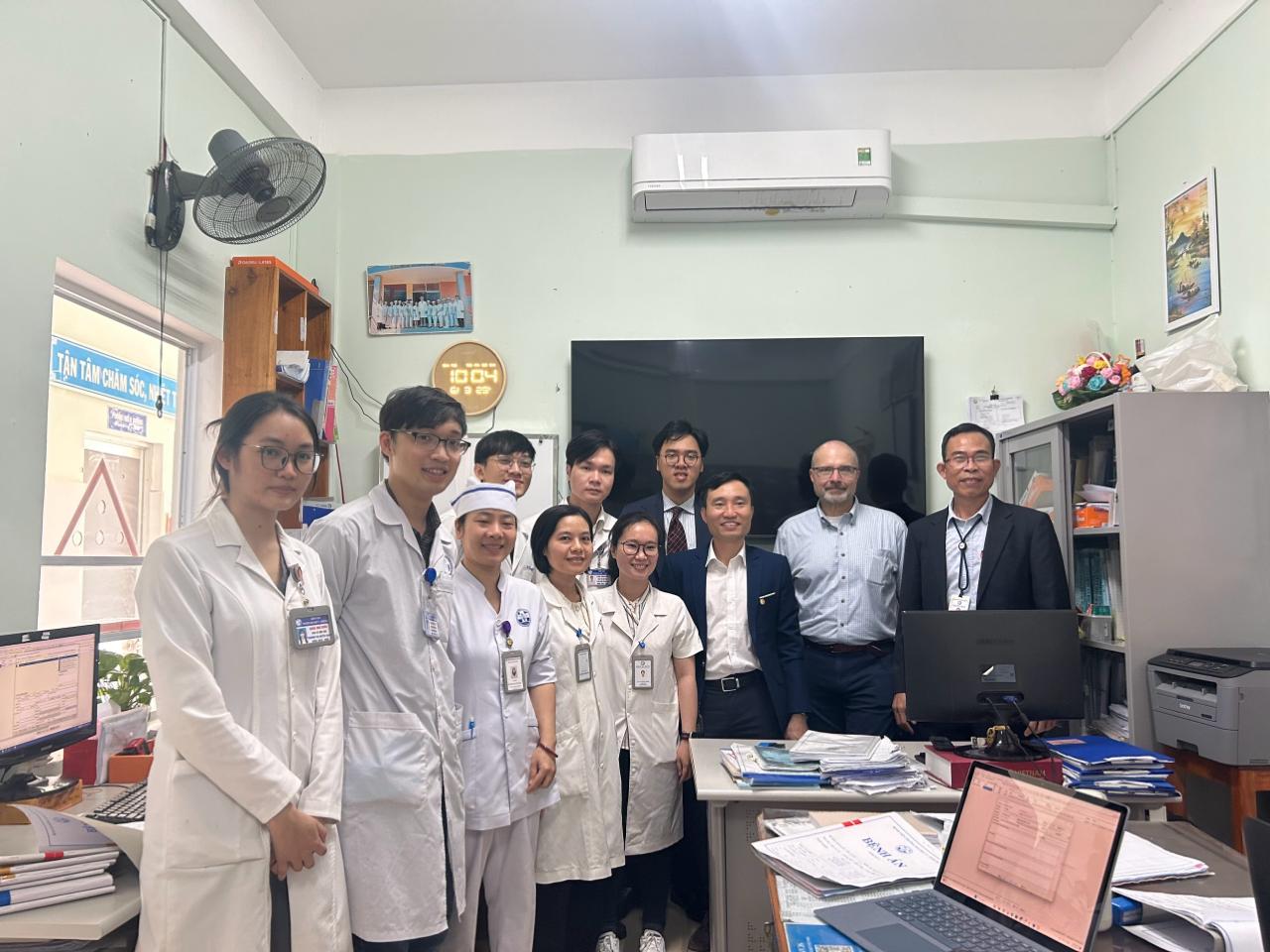
In collaboration with a Vietnamese faculty colleague, Owens also drew from his current area of research in disenfranchised grief in nursing to conduct a study (via online survey) on physician death anxiety (anxiety about their own death, not of patient deaths). While the current study specifically focused on oncology residents, the pair are also working on a collaboration with oncology nursing in Hue and Hanoi to study the concept there. They plan to repeat the Physician Death Anxiety study with oncology residents in Hanoi later this year.
Updates in palliative care in Hanoi
During his first trip to Hue 5 years ago, Owens met Dr. Dung, then an oncology resident, who has since completed his residency and his Ph.D. in Europe, and is now the Deputy Head of the Department of Oncology, Vice-Dean of the Faculty of International Education and President of the Young Oncologist Association of Vietnam. Over the years, Owens and Dung have remained friends and colleagues.
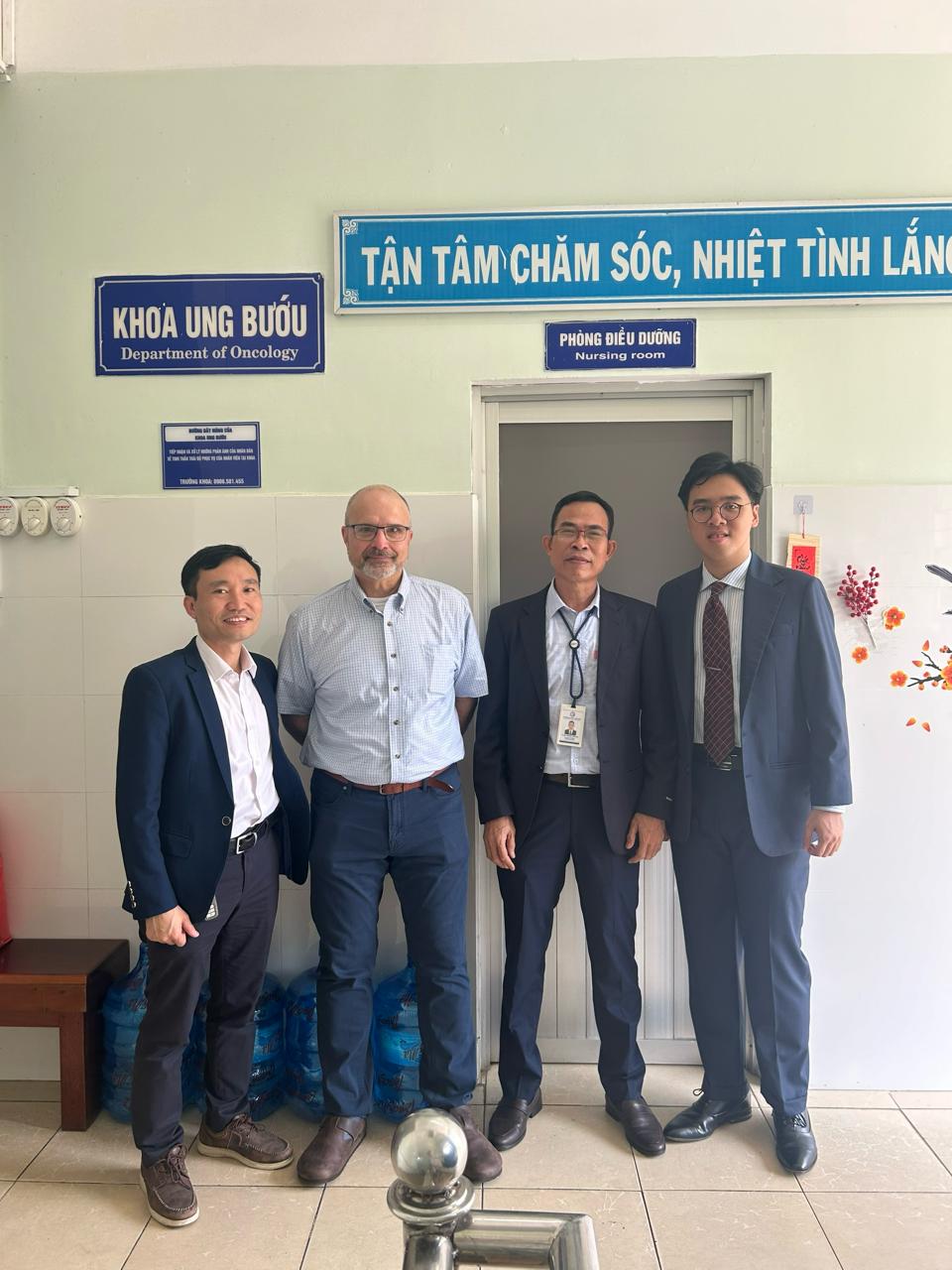
current director of oncology,
one of the second-year residents,
and my colleague Dr. Dung.”
This year, at the invitation of a colleague of Dung’s from the Young Oncologist Association of Vietnam, Owens travelled from Hue to Hanoi to meet with oncologists and discuss and lecture on palliative care.
In Hanoi, Owens provided a lecture for physicians and nurses on updates in palliative care at National Cancer Hospital #1, one of the city’s three national cancer hospitals. During this visit, he met with faculty, staff and hospital leadership including the Director of Clinical Trials and Research, the Director of Nursing, the Director of Palliative Care, and the Vice-Department Head for the Department of International Collaboration and Research.
“National Cancer Hospital #2 is designated as the palliative care hospital. This hospital admits approximately 10,000 palliative care-focused patients annually and is staffed with only eight oncologists who have received various degrees and types of palliative care training (there is no organized consistent palliative care training YET; we are working on it). As one can imagine, these physicians experience high compassion fatigue and burnout (based on discussions held with them during my visit).“
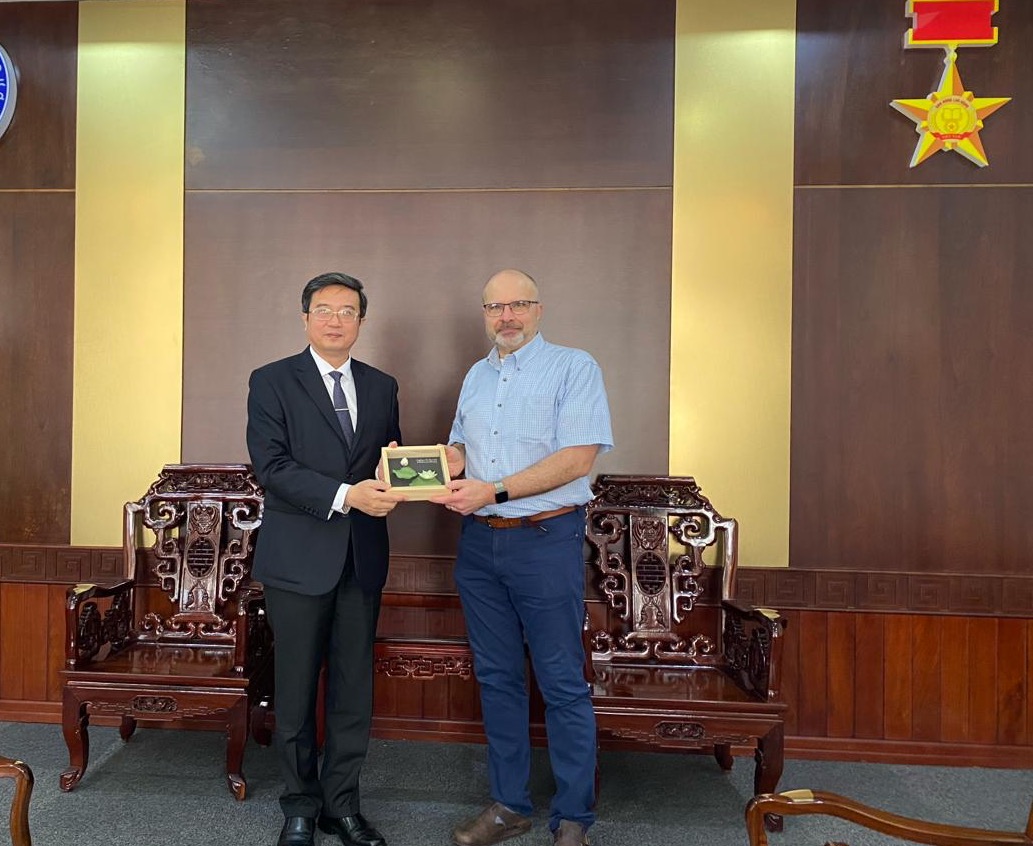
Building toward the future
Beginning in October 2024, Owens will return twice per year to Hue and Hanoi to continue providing palliative care education and conducting research. His work will include training the trainer as he and colleagues develop an ongoing and more formalized palliative care training program for central and northern Vietnam. When he returns, the National Cancer Center asked that Owens bring a palliative care-trained nurse and social worker to assist with nursing education and the medical and grief education. Additionally, he is working with Ministry of Health representatives to explore what hospice at home might look like in Vietnam.
Owens is also a contributing member of the Raising Hope Foundation, an organization founded by Owens’ friend and colleague, Dr. Dung.
Owens said, “My amazing colleague, Dr. Dung, started the Raising Hope Foundation, named after a patient who died of an aggressive cancer in her 20s. The program director is a second-year oncology resident, and I am honored to be a contributing member of this wonderful organization.”
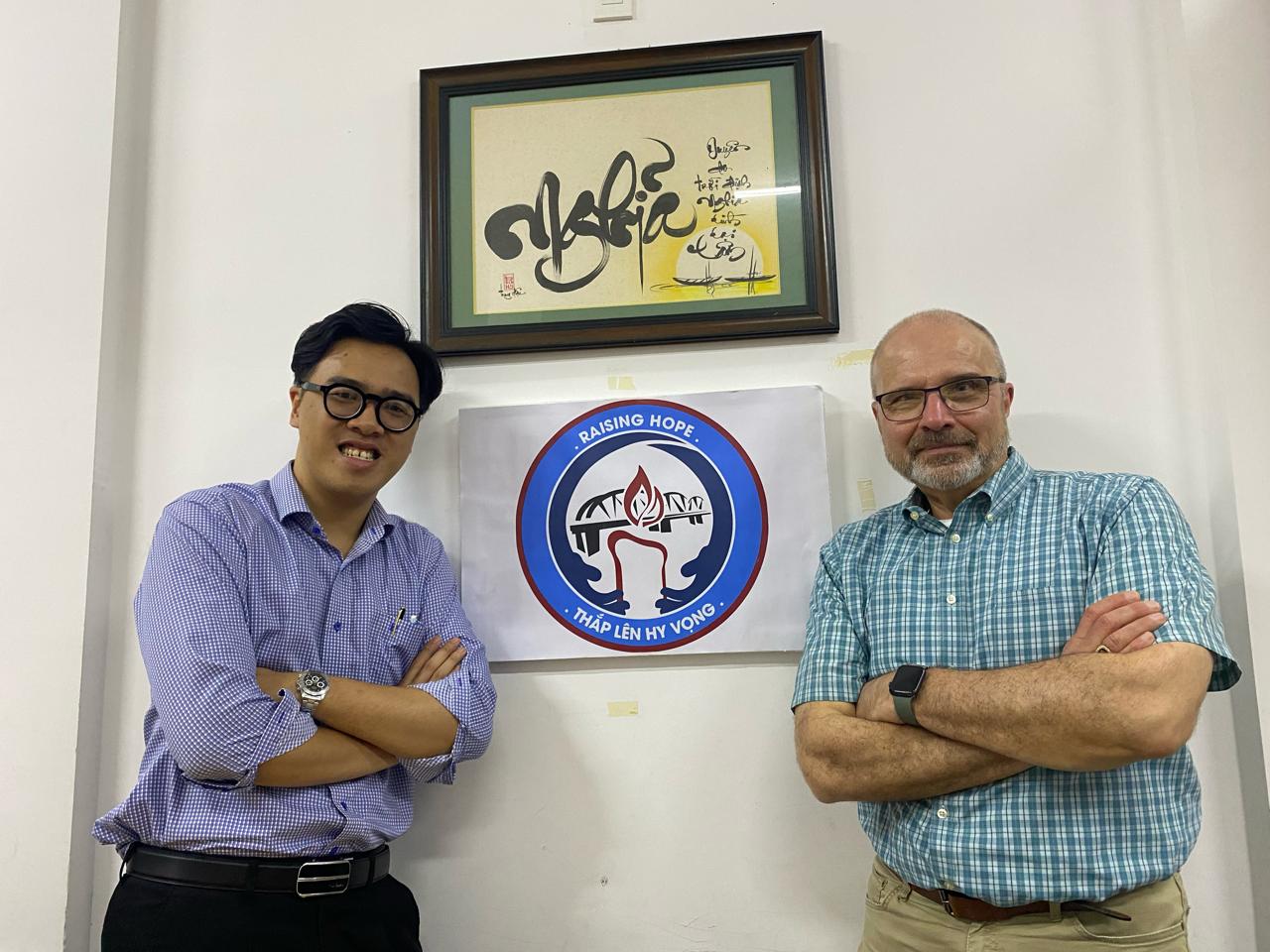
of the Raising Hope Foundation.
The foundation, whose members are medical students and oncology residents, supports many causes related to the financial limitations placed on patients, families, and residents in Vietnam. Donations through the foundation help to pay for cancer-associated treatments that families cannot afford and English and French lessons for students and residents, as these help increase their chances of studying abroad. Finally, the donations are used to help pay for transportation and housing for residents who travel to Europe as part of their residency.
“It is an honor and privilege to help change how two geographic areas of an entire country improve care of the dying,” Owens said.